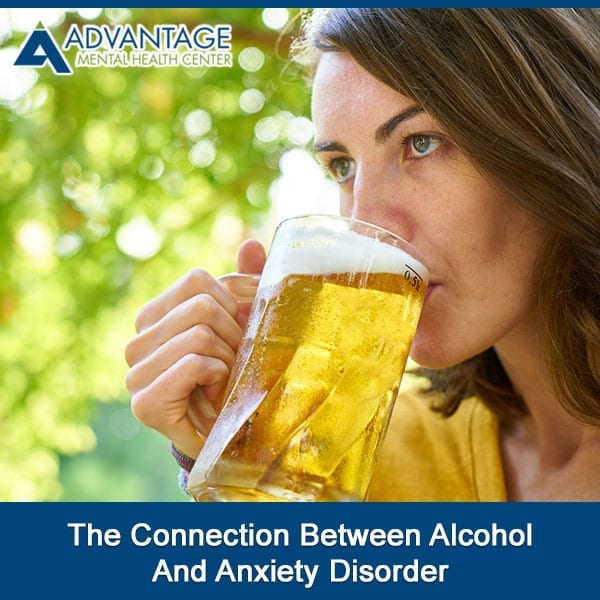Many people use alcohol to alleviate their anxiety. Eventually this will cause even more anxiety and stress, especially when drinking excessive amounts of alcohol. If you already suffer from anxiety, one alcoholic beverage can easily lead to a dependence on alcohol. One study that looked at alcohol and anxiety disorder said this is a dangerous, self-perpetuating cycle.
How Drinking Causes Anxiety
Heavy drinking can negatively impact your mental health. According to research, there’s a link between alcohol use disorder (AUD) and anxiety disorder. This is because drinking heavily on a regular basis interferes with your brain’s neurotransmitters which are responsible for your mental wellbeing.
In 2017 a study reviewed 63 studies showing that reducing alcohol intake results in improvements for both depression and anxiety. According to these authors drinking less alcohol improves self-confidence, social functioning, and overall life quality. However, it isn’t clear whether alcohol causes anxiety or anxiety leads to alcohol consumption. Another study done in that same year did clinically measure anxiety. In doing so it discovered that levels were higher in those who had AUD.
Alcohol’s Initial Effects
Initially alcohol may help you to relax. It can also improve your mood and boost your self-confidence. Unfortunately, these feelings are both short lived and risky. They can result in:
- Extreme mood changes
- Forgetfulness
- Impaired vision
- Lack of coordination
- Health issues including damage to your liver and pancreas; cancer; ulcers; heart disease; and infections including respiratory infections
What Your Future May Look Like
Instead of turning to alcohol, most people manage their anxiety disorder through lifestyle changes, medication, and therapy. Unfortunately, if you have AUD, your outlook is more complicated because this chronic condition has various effects on your mind and your body. Once you become an alcoholic, your likelihood of maintaining sobriety for a year is only 27% and only 22% of those studied were able to maintain sobriety for 20+ years. So, if you’re worried about your alcohol use and anxiety, it’s important to find a healthy way to solve your issues.
Available Lifestyle Changes and Treatment Options
There are many healthy ways to manage your anxiety disorder, outside of drinking alcohol. These include:
- Exercising on a regular basis
- Getting enough sleep
- Drinking less caffeine
- Practicing relaxation techniques (e.g. yoga, meditation, massage)
- Finding activities to help keep you busy
- Taking medications (e.g. antidepressants, benzodiazepines)
- Getting counseling (e.g. interpersonal therapy, cognitive behavioral therapy a.k.a. CBT)
If you’ve already turned to alcohol to help with your anxiety disorder, it’s not too late. Many of these same techniques can also work for you. Additionally, you should identify your triggers (e.g. anger, stress) and avoid alcohol during those times. Talking to your doctor can also be helpful as he may prescribe medications like disulfiram (Antabuse), naltrexone (Vivitrol, Revia, and Naltrel) or acamprosate (Campral).
Getting Help
When you experience any of the following symptoms you should talk to your doctor:
- Nervous or irritable feelings
- Feeling like you’re in imminent danger or about to panic
- Being unable to concentrate
- Noticing your heart rate increased
- Hyperventilating, sweating, or shaking
- Experiencing blackouts
- Alcohol interfering with your work or home life
- Feeling constantly tired or having an erratic sleep pattern
- Having a strong urge or need to drink alcohol or drinking increased amounts of it to achieve your desired effect
- Skipping enjoyable activities so you can drink
- Being in dangerous situations while drinking
If you’re someone who suffers from anxiety disorder, before picking up your next drink, reach for the phone and give the Advantage Mental Health Center a call instead. They’ve treated many people for anxiety, helping them find better ways to cope with their issues. If you’re already drinking too much alcohol, it’s especially important that you get help ending this addiction today.
Picture Credit: Engin_Akyurt


